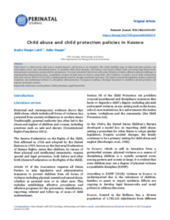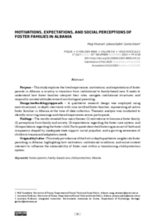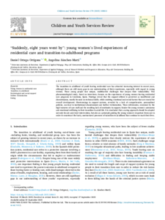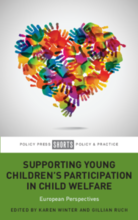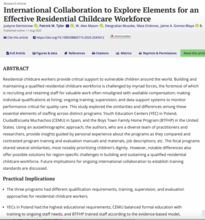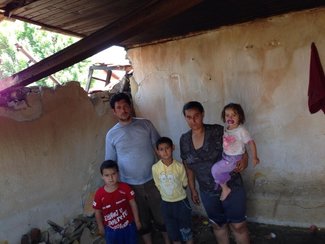

Displaying 1 - 10 of 544
This article explores a pilot study in Italy in which care-experienced young people acted as co-researchers to examine perceptions of child maltreatment and state intervention, focusing on the co-construction of knowledge between survivors and academic researchers. It finds that peer-led research strengthens epistemic justice and professional practice by integrating lived experience with academic analysis and fostering relational, supportive spaces for young people’s voices in care proceedings.
The Government of Malta, through the Ministry for Social Policy and Children's Rights, is close to launching a formal After-Care Policy to support young people leaving residential alternative care, aiming to offer them stability, opportunities, an
This article examines child abuse in Kosovo by analyzing policy gaps, risk factors, legal frameworks, and challenges in implementing child protection laws, drawing on interviews with senior Ministry of Justice officials and national data. It highlights a significant rise in child victimization between 2020 and 2022 and recommends legislative updates, institutional reforms, and the development of a national strategic document to strengthen child protection systems.
The multiple and extensive transformations that have occurred in Eastern Europe since the 1990s did not bypass care, bringing diverse care regimes. This chapter, in the Research Handbook on Social Care Policy, aims to explore the main trends in the development of care policies in Croatia (a post-Yugoslav country) and the Czech Republic (a Visegrád country).
This qualitative study examines the lived experiences, motivations, and expectations of foster parents in Albania as the country transitions from institutional to family-based care, drawing on in-depth interviews with all active foster families at the time of the research. Findings reveal that fostering is driven by faith and compassion but shaped by limited state support, social stigma, and increasing awareness of children’s trauma, offering rare insight into how institutional and social contexts affect the sustainability of foster care in Albania.
This study explores the experiences of young women leaving residential care in Catalonia, Spain, revealing that limited, inconsistent support—focused mainly on technical skills—neglects their emotional and social needs. It calls for a caring, individualized approach to guide their transition to adulthood and prevent further vulnerability and institutional abandonment.
This article, from EuroChild, notes how in August 2025, North Macedonia took a significant stride toward strengthening child welfare by officially adopting its National Action Plan on the Rights of the Child for 2025–2029.
This Policy and Practice Short has emerged from an Erasmus+ Key Action 2 project funded by the European Union (EU). The project has become known as the PANDA project, an acronym drawn from the words participation and collaboration for action, and its focus is on promoting the participation rights of young children, aged 12 and under in child welfare and child protection.
This study examined the long-term use of the Standard Triple P parenting program in Portugal’s child protection system, five years after 16 practitioners were accredited. Using a SWOT analysis and the Integrated Sustainability Framework, the study identified key strengths, weaknesses, opportunities, and threats affecting program sustainability, highlighting the need for deliberate planning to ensure evidence-based parenting programs are maintained over time and effectively reach families in need.
This study compares residential childcare workforce practices across programs in Poland, Spain, and the United States, examining recruitment, training, supervision, and performance monitoring. Findings reveal both shared priorities, such as upholding children’s dignity, and region-specific differences that suggest potential solutions and highlight the value of international collaboration to strengthen training standards.

